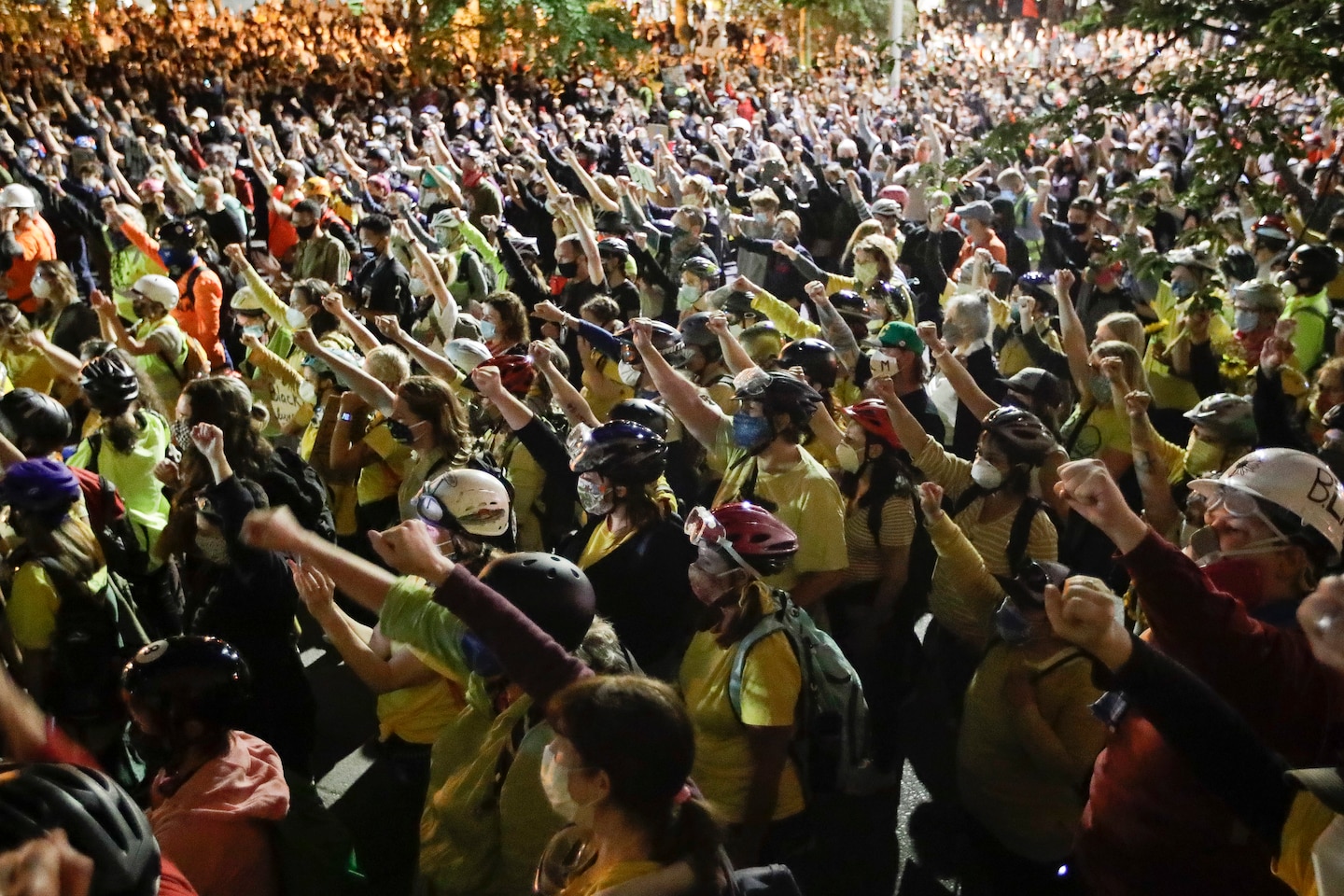Take Trump’s best weapon away from him

Of course they do, but that’s not the point. The best retort to this common refrain was a tweet I saw recently that read: “All lives can’t matter until black lives matter, (too).”
If you believe that blacks are often singled out for shameful police treatment, precisely because they’re black, then you understand the poster’s meaning. “Driving while black,” effectively a policy in New York City under then-Mayor Rudolph W. Giuliani, was born of countless real injustices. Both are examples of systemic racism that most whites seldom see, understand or, until relatively recently, even knew existed.
When an African American mother has to explain to her children how to interact with a police officer to avoid being shot, that’s systemic racism.
When a black woman is not allowed to look at a $38,000 Gucci handbag because the sales clerk said, “It’s too expensive,” that’s systemic racism. That particular incident happened in Switzerland to Oprah Winfrey, but racism isn’t confined by wealth, celebrity or national boundaries. Other examples could fill countless volumes.
The national and international discussions about race in the wake of George Floyd’s killing while in Minneapolis police custody are part of the honest-discussion-about-race that we’ve been avoiding since the civil rights movement, if not the Civil War.
Many whites, especially older folks, feel they’ve already exhausted the subject; blacks know we’ve barely scraped the surface.
It has been remarkable to reflect on the BLM movement’s leap from its wobbly rise six years ago after the police killing of Michael Brown in Ferguson, Mo., to its role today as the driving force of cultural and institutional change. Young people, in particular, are overwhelmingly supportive.
But once official Whitedom embraced the movement — adding the slogan to corporate websites and altering school curriculums to include classes in BLM — something of its authentic power may have been misappropriated. By the time people were doing midnight yoga in Black Lives Matter Plaza in D.C., I wondered whether some focus had been lost.
BLM as a business proposition seems at risk of becoming just another cultural fad. Leave it to corporations and other white groups to usurp a movement, brand it and market it, like “natural” foods, which aren’t always so natural. Within hours of Floyd’s death, the corporate race was on to declare a company’s commitment to BLM.
If some of these marketing strategies help BLM-allergic people to better understand how blacks and other people of color perceive and experience life, then I’ll take a dozen.
If peaceful protests result in greater justice and a much-needed demilitarization of police forces, then the movement will have accomplished what all kinds of protests, interest groups and nongovernmental organizations have been unable to achieve over decades.
BLM’s future will depend on its ability to deliver wins — and minimize its losses. The months of nightly protests in Portland, Ore., which started as a reaction to Floyd’s death, have since then come to look less like a rainbow of hope and more like a descent into anarchy. Portland is also where President Trump has decided to plant his flag and cast BLM as the root of all chaos, supposedly necessitating his deployment of federal agents wearing camouflage and armed with rifles, if only so he can deflect attention away from the virus and declare himself the law-and-order candidate.
For Trump, Portland is a convenient development — maybe even a lifeline. If BLM wants to be an agent of change, the movement’s leaders should do all they can to end the protests in Portland. And stop giving Trump what he wants and needs: a hammer to save his reelection.
Read more:






